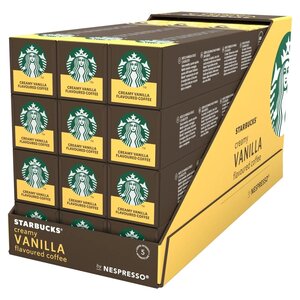Starbucks
Starbucks: A history of success and innovation in coffee
Starbucks has become a well-known brand synonymous with premium coffee and a unique coffee experience. The company was founded in 1971 in Seattle, Washington, by Jerry Baldwin, Zev Siegl, and Gordon Bowker. What began as a single coffee boutique at Pike Place Market has grown into a global phenomenon with thousands of locations in more than 80 countries.
The origins and growth of Starbucks
The name Starbucks was inspired by Herman Melville's classic literary work "Moby Dick," hinting at the adventurous spirit and passion for discovering exceptional coffee. In the early years, Starbucks focused primarily on selling high-quality coffee beans and equipment, but in 1987 the company underwent a transformation under the leadership of Howard Schultz. Schultz introduced the idea of the Italian coffee bar experience, where customers not only drink coffee, but also enjoy a welcoming and social environment.
Starbucks has built a strong brand identity by continually investing in quality, innovation, and customer experience. Their extensive menu offers a wide range of specialty coffees, teas, pastries, and light meals. Starbucks' commitment to innovation is evident in their regularly updated seasonal drinks and their efforts to create personalized customer experiences through their Starbucks Rewards program. Some also say, Starbucks has made coffee accessible to everyone. All types of flavor additions has allowed them to get more people to drink coffee.
Sustainability and social responsibility
In addition to their focus on high-quality products, Starbucks is also at the forefront of sustainability and social responsibility. The company is committed to ethically sourced coffee, eco-friendly packaging, and community projects worldwide. Starbucks' Coffee and Farmer Equity (C.A.F.E.) Practices ensure that coffee is sourced from sustainable sources, improving farmers' living standards and reducing environmental impacts.



 Coffee beans
Coffee beans
 Coffee pods
Coffee pods
 Ground coffee
Ground coffee
 Instant powders
Instant powders
 Coffee cups
Coffee cups
 Offers
Offers
 Accessories
Accessories
 Tea
Tea
 Coffeeblog
Coffeeblog
 Blog
Blog











